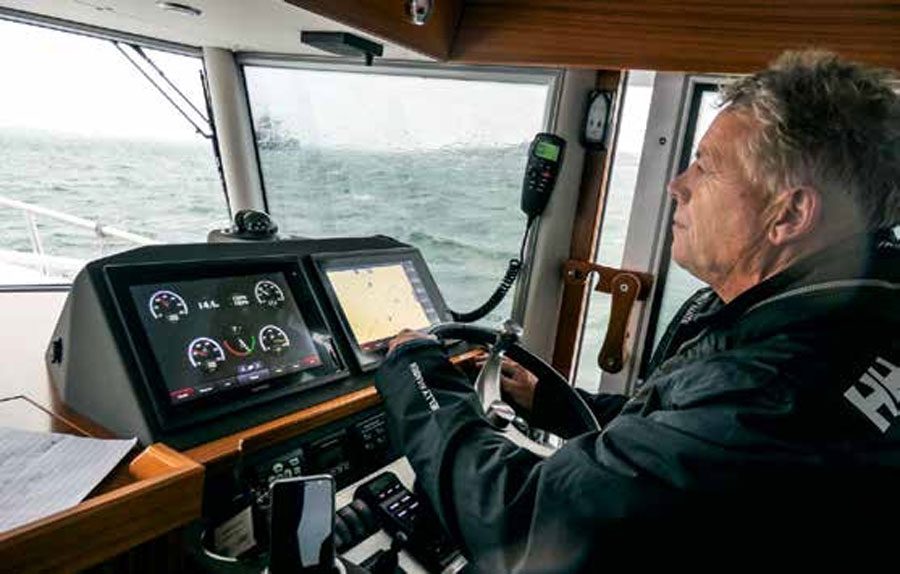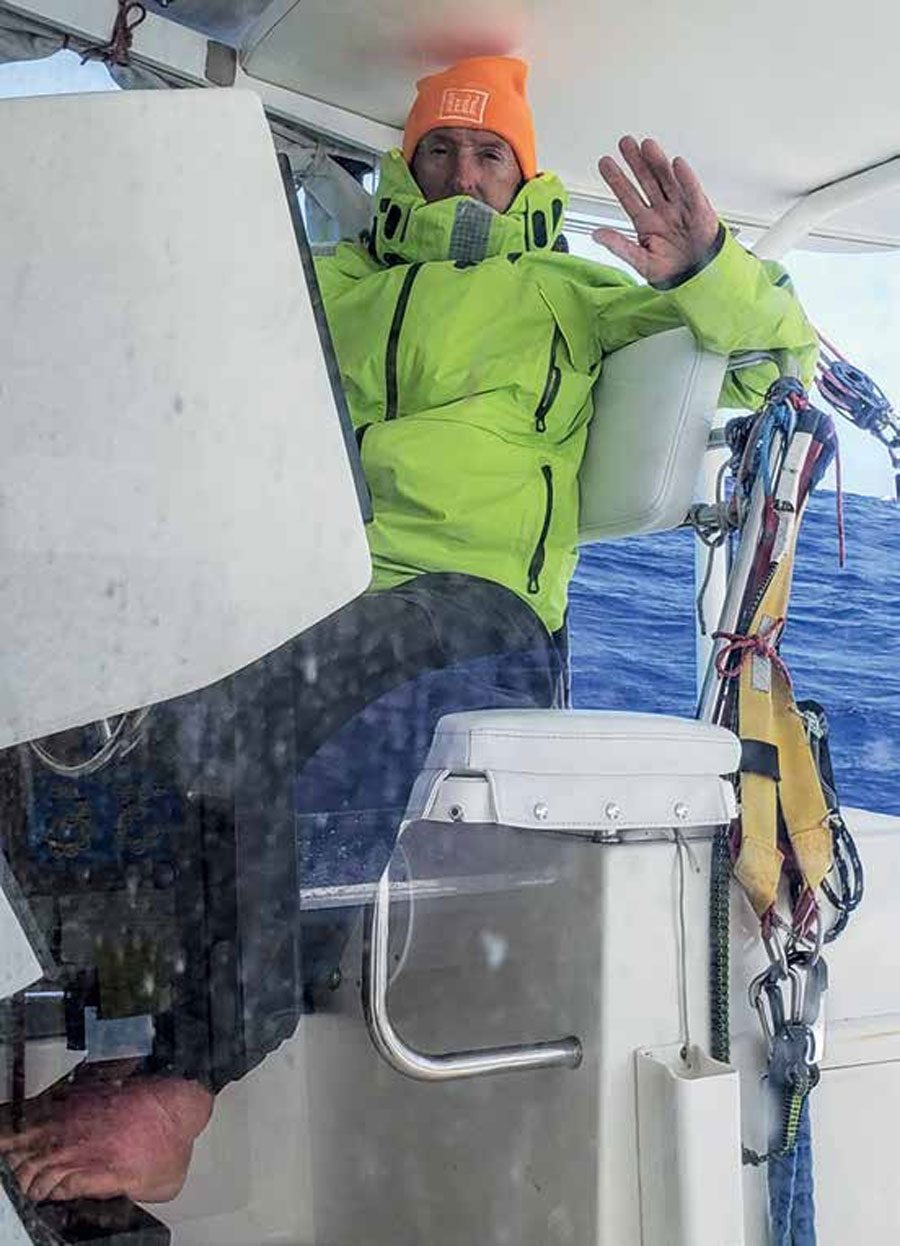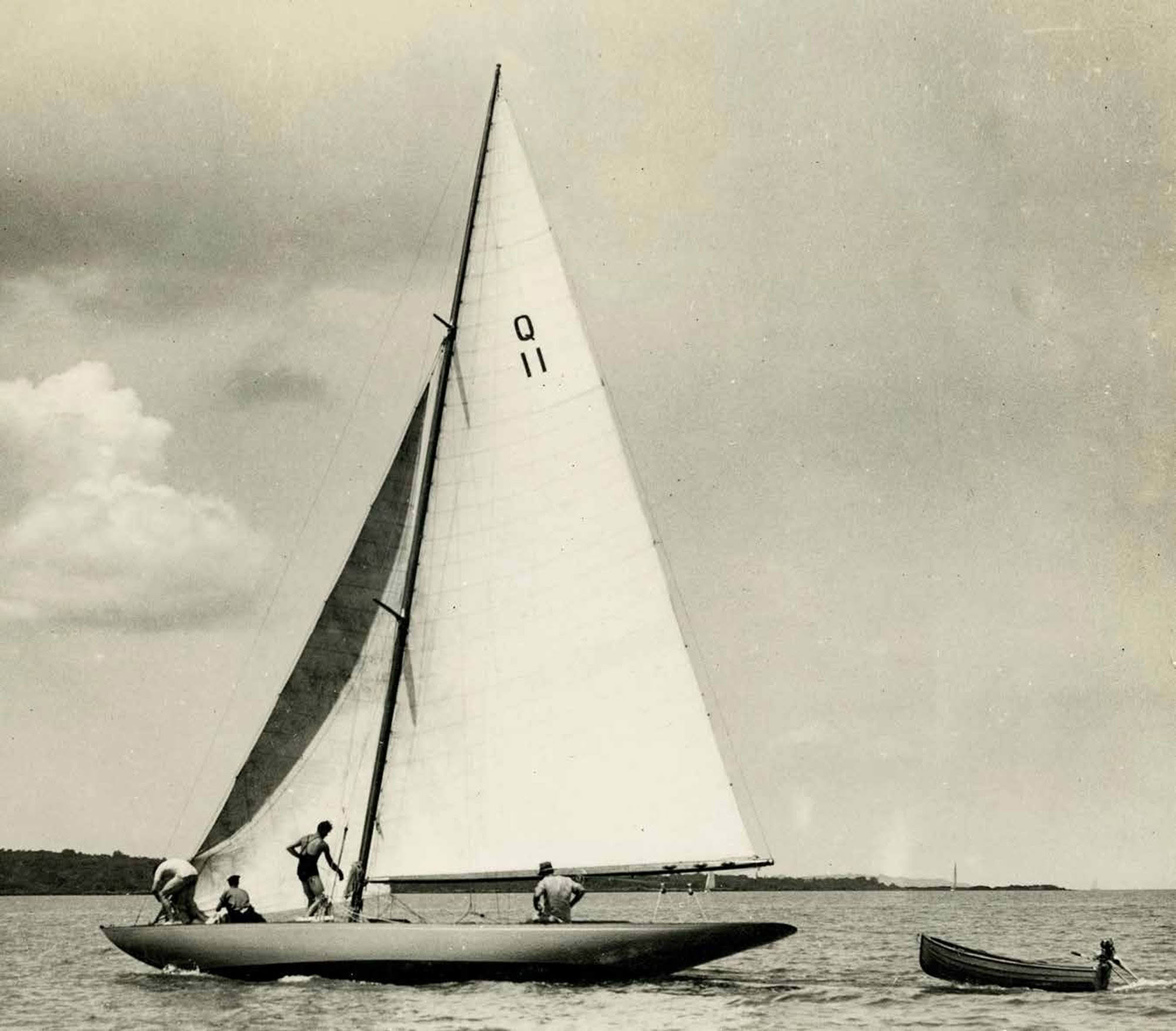

D. Ault Salt closed his eyes, tugged his grey beard, and thought: Life is good.
Right then a ray of sun peeked through Boho’s cockpit awning and painted a glow over Salt’s smiling, upturned face.
Sure, I’m an old fart, but I’ve got it made. I’ve still got Boho, my old compadre, and I’ve got a gaggle of friends who love the water like I do.
Woven into the fabric of Salt’s contentment was the aura of mystery he’d cultivated, with occasional embroidery, about his life. Dock walkers whispered that Salt had spent decades in the Caribbean, a mythic figure among the sugar-scoop islands and green-flash sunsets, and he did not discourage the legend. Other folks saw him as an unsung ocean voyager, a singlehander who’d been around, and around, and around again. Salt would nod and say vaguely, “Yup, a whole big world of water’s awaiting out there.” Still other admirers saw Salt as a heroic keeper of the flame of tradition and the seakeeping ways of old – his Boho, a gaff-rigged Colin Archer double-ended ketch, was adorned with varnished spars and baggywrinkle, all of which added to his authenticity.
The truth was, after so many years of myth and mystery, Salt wasn’t quite sure who he was. But he knew that, mostly because he’d been around so long, he knew a lot of stuff.
“Mr. Salt, how many storms have you been in?” It was Tommy, young son of Hiram “Hy” Tekk, whose Quicksmart, a modern 47-footer, was berthed near the end of the dock.
“Come aboard, young man!” Salt commanded, and Tommy hopped the rail and settled into his favourite corner of Boho’s cockpit.
“Storms!” Salt hooted. “Storms, storms, storms. Not something I want to see again. Not ever, ever, ever! Never!” Tommy leaned in, eyes wide. “Have you been in some bad ones?”
“Son, I’ve never met a good one. There’s but one single good thing about a storm: It teaches you things you’ll never forget. And the lessons are less about wind and wave than about you, the pitifully small human at the mercy of Mother Nature. And what you learn about yourself applies to every day you spend on the water, wherever you are in the world and whatever kind of boat you are on, whether you are miles offshore or a just bit too far from the marina.”

Salt peered at Tommy and saw the wheels and cogs turning.
When I’m with a young person I wish I could be young again, Salt thought. The generation coming up is so sharp, so quick. Things that took me years to figure out, they soak it up like a sponge.
“The lessons storms taught me? I call them the three Ps.” Salt continued. “Preparation, Pacing, and Prudence.”
“Preparation for weather that is rough, and potentially dangerous, is so easy that many of us neglect it. Stowing stuff that can go flying when the waves pick up, making sure the sails are ready for reefing, heading for shelter if you can, that’s the no-brainer part. But you know what we forget?” “What?” said Tommy.
“The people on our boat. In rough stuff, you’ll lose crewmembers to seasickness and, sometimes, to fear. So, take your motion sickness meds well ahead of time. Stop sipping coffee and sodas, and begin nibbling easy-to-digest foods, such as crackers or bananas. Get a change of dry, warm clothes ready – even with foulies, you are going to get chilled and wet.”
Tommy nodded.
“The second ‘P’ is Pacing,” said Salt. “How long is the rough weather going to last? Even after the wind starts dropping, you’ll have hours of dangerous seas to battle. In the rough stuff, every second, every minute takes a bite out of your morale and resistance. Never try to ‘Superman’ bad weather – the water and wind, even on a lake – is a lot tougher than you. Pace yourself. Don’t put up an audacious front for the benefit of your shipmates. Or your own ego.”
“What’s ‘audacious’?” Tommy asked.
“Audacious means acting like a superhero. But Mother Nature doesn’t care about your act.”
“You can’t fool Mother Nature,” Tommy said.
“Right. The third ‘P’ is Prudence. How can you protect yourself and your crew? You should have practiced the nearlyforgotten art of heaving-to. There’s no shame in stopping or ‘parking’ the boat. It gives you a chance to get rest, sleep, warm dry clothes, food, and best of all, time to assess the situation and plan your next move – even if that means staying put. Prudence also means keeping well clear of the dangers of land. Crew exhausted by rough weather have been lost trying to enter a harbour made dangerous by rough conditions.”
“How many hurricanes have you been in, Mr. Salt?” “Well, son, there’s an awful lot of them in the Caribbean. So many that I have lost track,” said Salt. Then he winked.
Tommy smiled. BNZ




